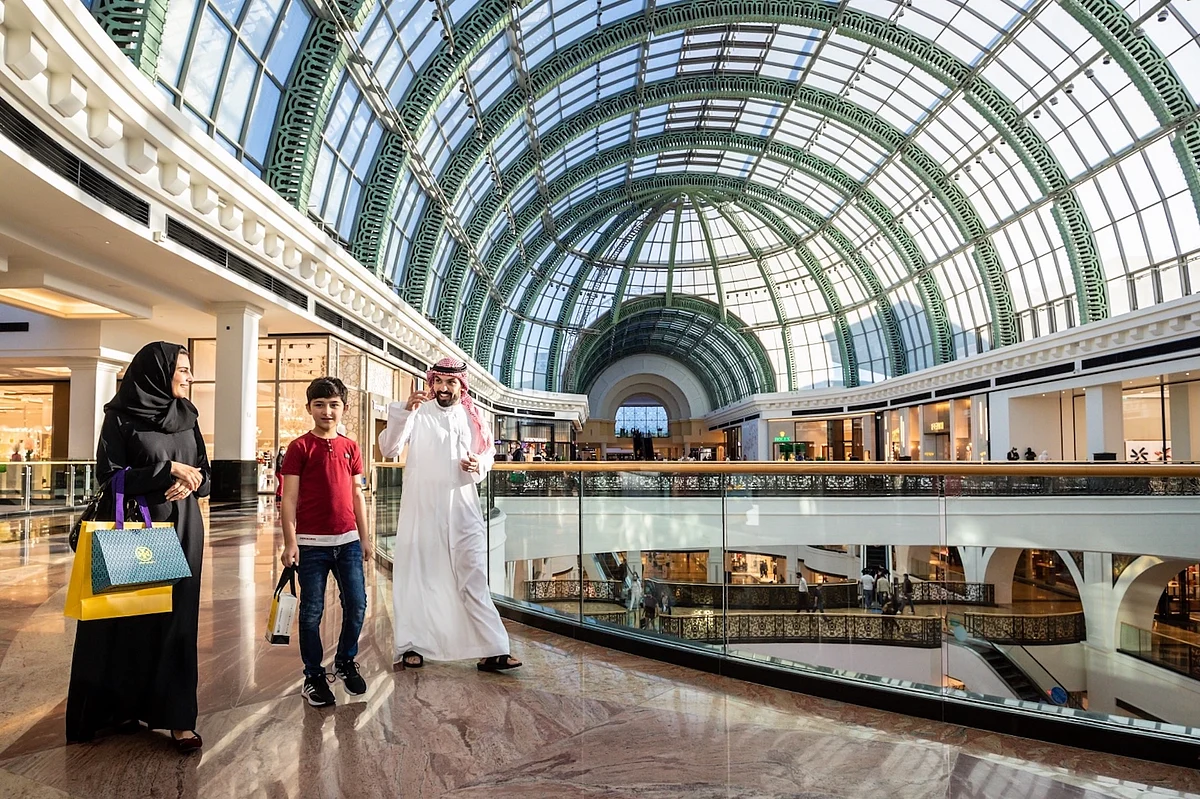
UAE Emerges As Global Luxury Hotspot As Experiential Spending Redefines Wealth
The UAE has emerged as one of the world's fastest-growing luxury markets, with Euromonitor International projecting a robust 9 per cent growth rate between 2025 and 2030.
The country's burgeoning affluent population, appetite for experiential luxury, and expanding wellness and lifestyle sectors are turning it into a key driver of global luxury demand.
Recommended For You Commvault announces expanded local partnership with HPE at Gitex Global UAE: Gold prices cross Dh500 per gram for the first time everAccording to Euromonitor's World Market for Luxury Goods 2025 report, the global luxury industry, now valued at $1.5 trillion, remains resilient despite economic uncertainty and geopolitical tensions. The UAE and wider Middle East are at the forefront of this momentum, joining the ranks of South Africa, Sweden, India, and Indonesia as top global growth engines.
The UAE's transformation from a high-end shopping destination to an epicentre of immersive luxury experiences reflects a wider evolution in consumer behaviour - one that prizes emotional connection, exclusivity, and cultural engagement over mere ownership.
In 2025, physical stores accounted for 81 per cent of global personal luxury goods sales, underscoring the resilience of in-person retail in an increasingly digital age. Affluent consumers, particularly in the UAE, are returning to luxury boutiques not just to shop, but to engage with bespoke services, immersive storytelling, and high-end hospitality.
“Amidst market uncertainty, the industry is shifting from product-centric models to experience-driven engagement,” said Fflur Roberts, Global Insight Manager for Luxury Goods at Euromonitor International.“Wellness, lifestyle and emotional resonance are emerging as new markers of status.”
Indeed, luxury in the UAE is now deeply intertwined with wellness and lifestyle. Demand for spa-led hospitality, luxury retreats, and wellness-driven real estate is soaring as wealthy consumers seek spaces that blend indulgence with wellbeing.
This aligns with global trends - the experiential luxury segment grew 8 per cent in 2025 to reach $103 billion, driven by surging demand for luxury travel, wellness destinations, and lifestyle-led services. In Dubai and Abu Dhabi, flagship developments such as Atlantis The Royal, Bulgari Resort, and Mandarin Oriental are redefining luxury hospitality through personalised wellness experiences, art curation, and exclusive culinary collaborations.
The ageing affluent demographic is also reshaping the luxury narrative. Consumers over 60 now represent one of the fastest-growing and most influential spending groups worldwide.
With longer life expectancies and a focus on vitality, this cohort is driving demand for sophisticated but meaningful luxury - from age-inclusive skincare and curated travel to wellness communities and upscale retirement living.
“This generation is redefining indulgence by seeking experiences that enhance quality of life,” Roberts added.“It's no longer just about opulence, but about purpose, health, and connection.”
In the UAE, this evolution is reflected in how brands are localizing their presence. Houses such as Dior, Louis Vuitton, and Chanel have launched boutique expansions that fuse craftsmanship with cultural storytelling, while Emirati brands like The Giving Movement and Arcadia are blending sustainability with homegrown luxury.
Luxury automotive brands are also adapting to changing preferences, with electric performance cars from Bentley and Rolls-Royce gaining traction among younger and environmentally conscious buyers.
Digital engagement remains central to the luxury experience, even as physical retail thrives. Euromonitor's Voice of the Consumer: Retail Survey 2025 found that 52 per cent of high-income consumers now prefer in-store fashion shopping - up from 36 per cent in 2023 - yet many also expect seamless digital integration.
Brands are balancing technology and human connection by offering virtual consultations, AI-assisted styling, and immersive metaverse activations while maintaining the intimacy of traditional retail.
As the UAE continues to position itself as the luxury capital of the Middle East, its blend of cultural ambition, high per-capita income, and innovation-friendly environment is attracting the world's top luxury players. With over 200 nationalities calling the country home and tourism surging past pre-pandemic levels, the demand for ultra-personalised, wellness-infused, and sustainable luxury experiences shows no signs of slowing.
The country's trajectory mirrors global shifts but with a distinctive regional flair - one where luxury becomes a statement of lifestyle rather than wealth.
As Roberts concluded,“For brands, this is a defining moment to rethink luxury through the lens of longevity, wellness, and conscious indulgence. The future of luxury will be written where experience, emotion, and innovation intersect - and the UAE is already there.”

Legal Disclaimer:
MENAFN provides the
information “as is” without warranty of any kind. We do not accept
any responsibility or liability for the accuracy, content, images,
videos, licenses, completeness, legality, or reliability of the information
contained in this article. If you have any complaints or copyright
issues related to this article, kindly contact the provider above.
Most popular stories
Market Research
- Thinkmarkets Adds Synthetic Indices To Its Product Offering
- Ethereum Startup Agoralend Opens Fresh Fundraise After Oversubscribed $300,000 Round.
- KOR Closes Series B Funding To Accelerate Global Growth
- Wise Wolves Corporation Launches Unified Brand To Power The Next Era Of Cross-Border Finance
- Lombard And Story Partner To Revolutionize Creator Economy Via Bitcoin-Backed Infrastructure
- FBS AI Assistant Helps Traders Skip Market Noise And Focus On Strategy




















Comments
No comment